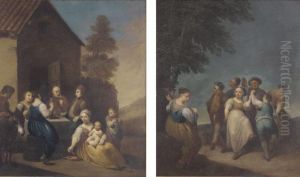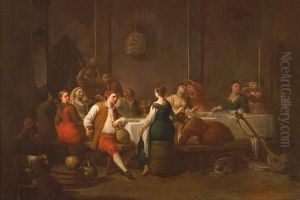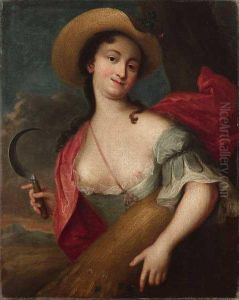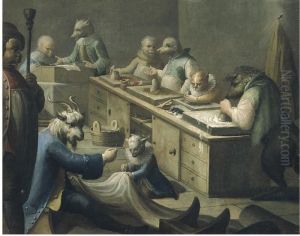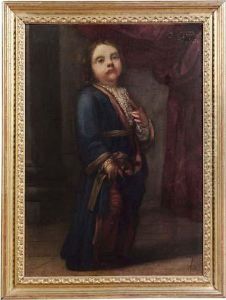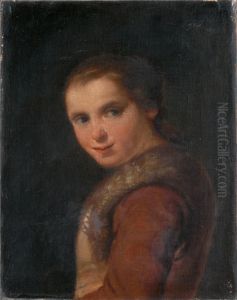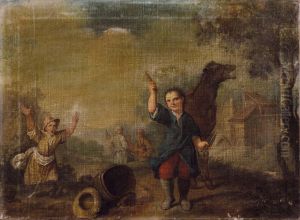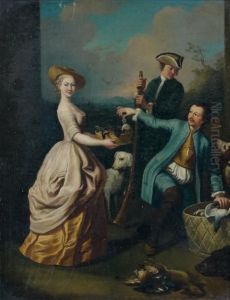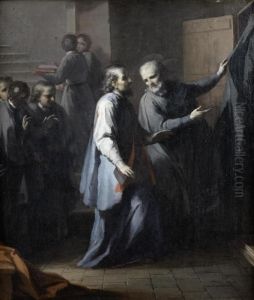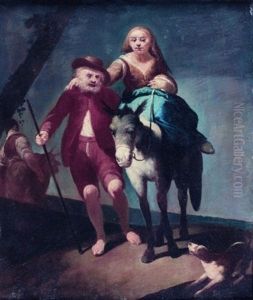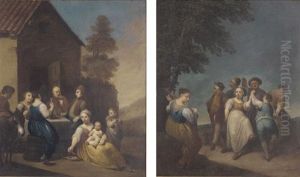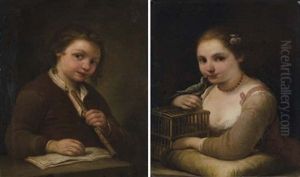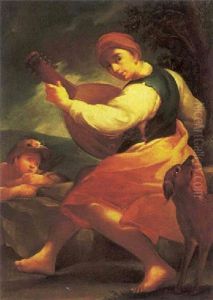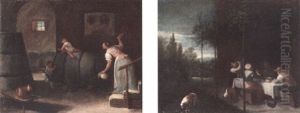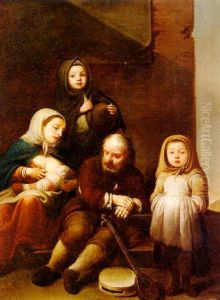Antonio Beccadelli Paintings
Antonio Beccadelli, also known as Panormita, was an Italian poet, canon lawyer, scholar, diplomat, and chronicler. Born on February 29, 1394, in Palermo, Sicily, he was a prominent figure of the early Italian Renaissance. Beccadelli was educated in Florence and later at the University of Bologna, where he studied canon law. He was renowned for his classical learning and his mastery of Latin, which was the lingua franca of educated Europe at the time.
His literary fame largely rests on his work 'Hermaphroditus,' a collection of epigrams written in Latin, which was both celebrated and controversial for its explicit content and the representation of both homosexual and heterosexual themes. The book was inspired by the ancient Greek Anthology and reflected the humanist's interest in reviving classical forms and themes. Despite its controversial nature, the work earned Beccadelli the patronage of prominent figures, including Alfonso V of Aragon, whom he served as a court poet and diplomat.
Beyond his poetic works, Beccadelli also wrote historical chronicles and biographies, including a biography of his patron Alfonso V. His dedication to the study of classical texts and the humanities was indicative of the burgeoning humanist movement in Italy, which sought to rediscover and apply the wisdom of the classical world to contemporary society.
Antonio Beccadelli's contributions to literature and humanism were well recognized in his time. He was crowned as a poet laureate and was a member of various literary academies, including the prestigious Accademia Pontaniana in Naples, which he helped to found. His works continued to be read and appreciated after his death on January 19, 1471, in Naples. Beccadelli's legacy is that of a scholar who embraced the humanist ideals of his age, promoting a revival of classical learning and literature.
